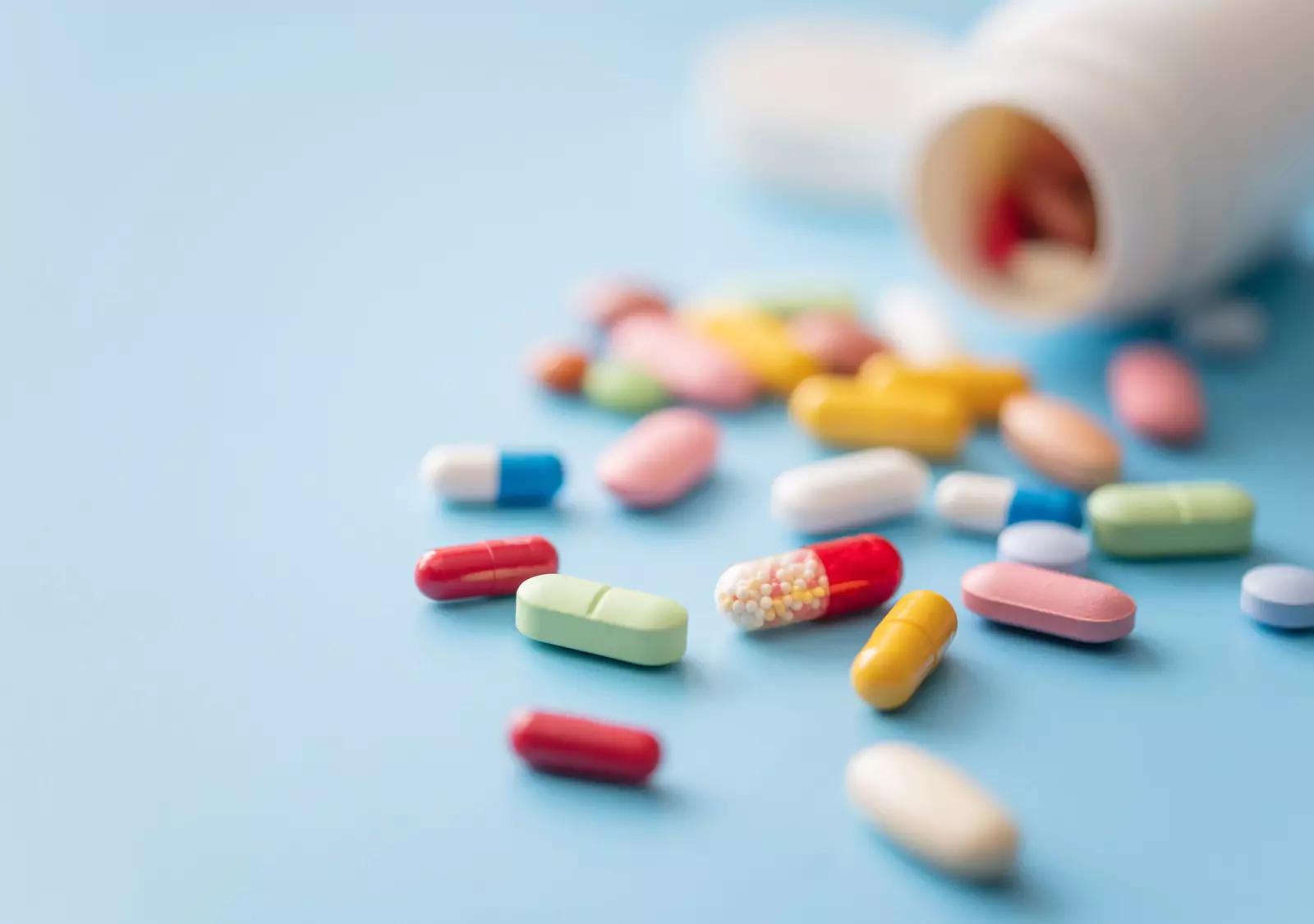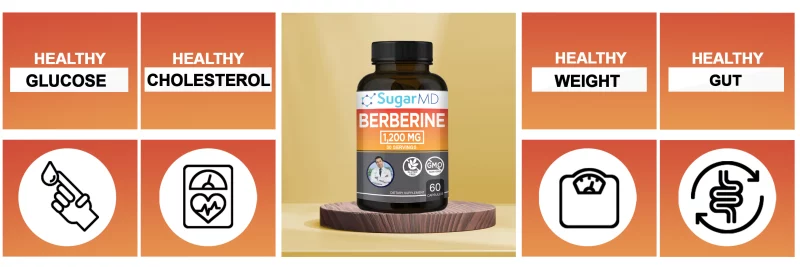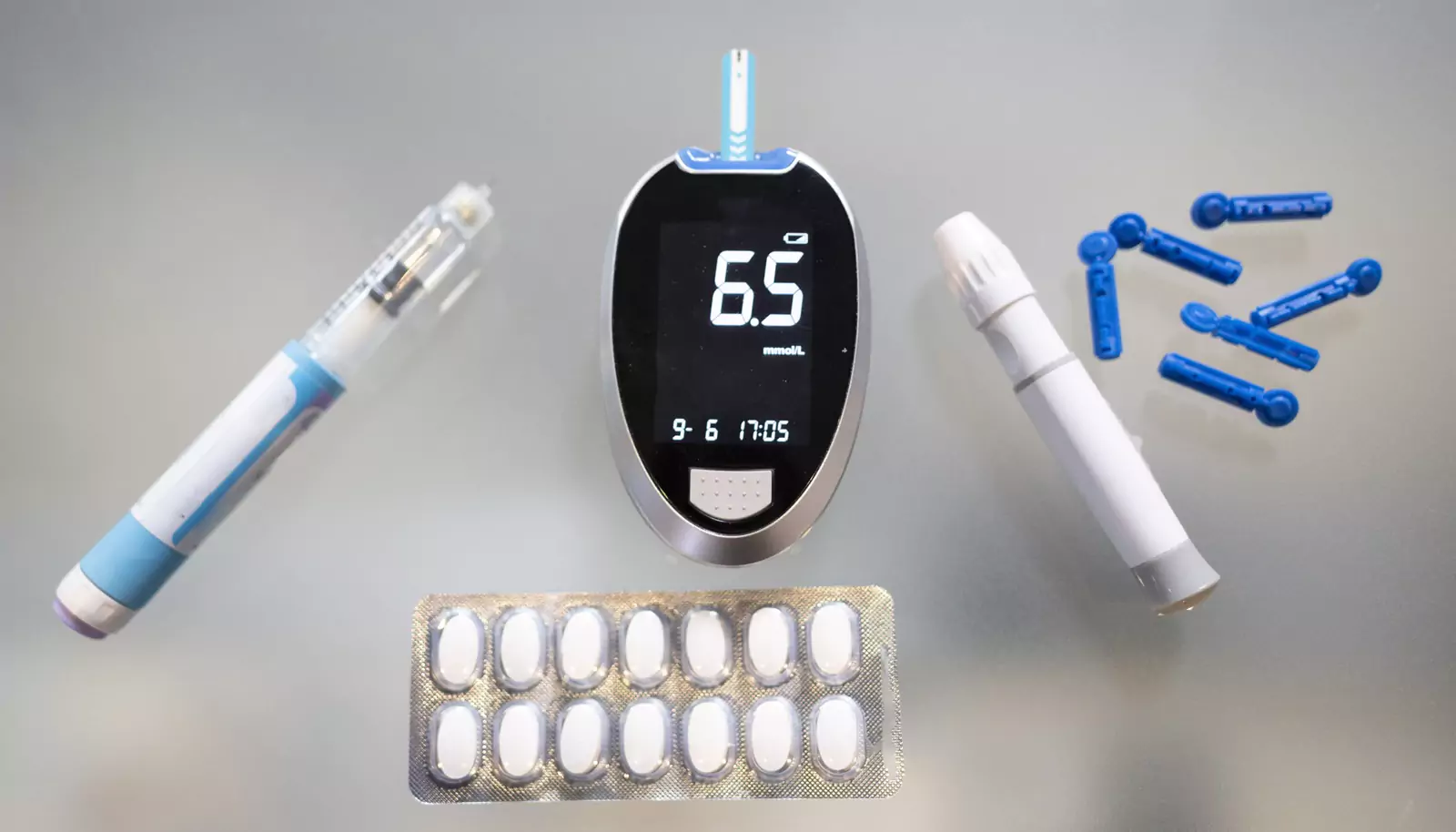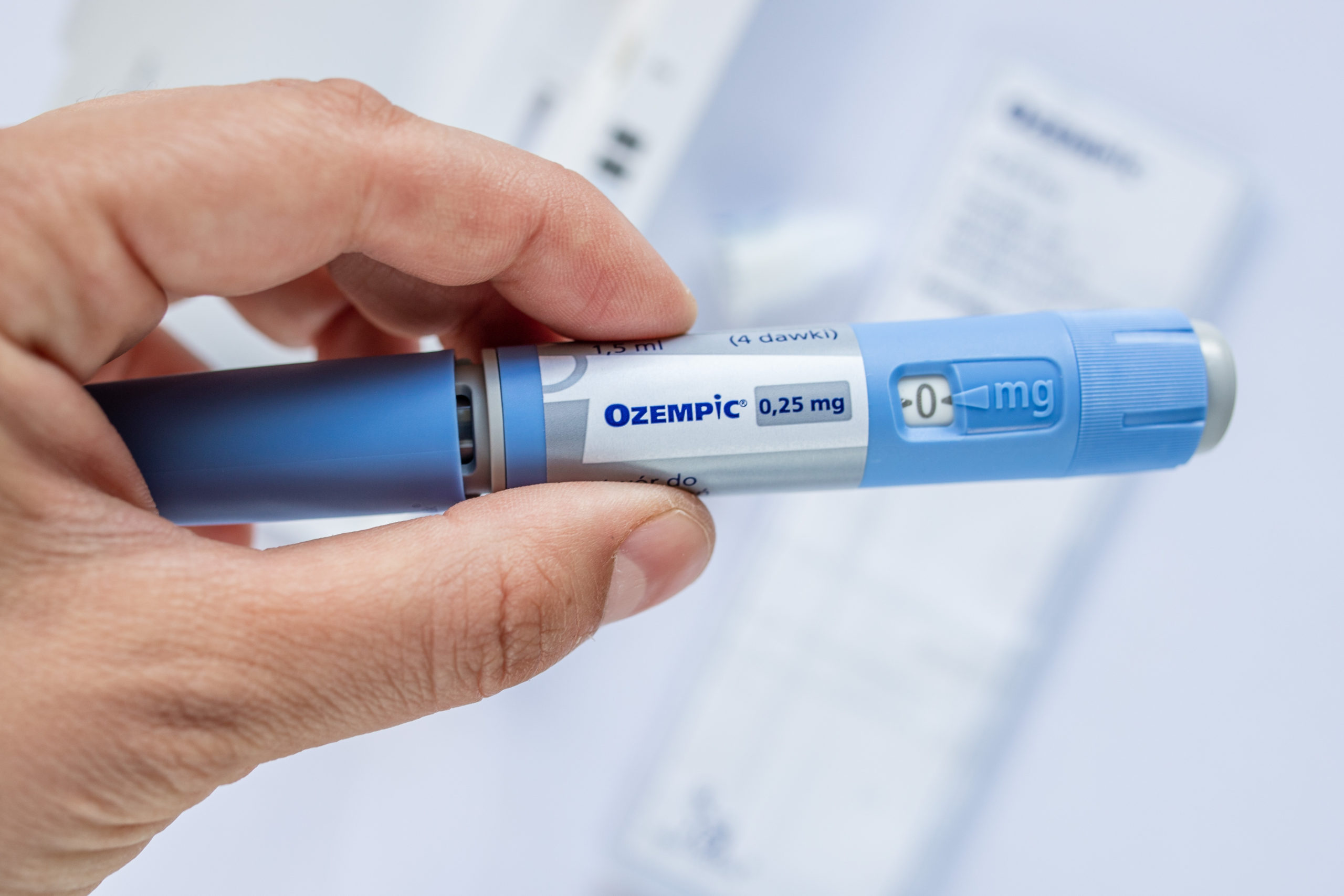
UP TO 40% OFF SITEWIDE






A Complete Comparison: Rybelsus vs Metformin for Weight Loss


Table of Contents
- Understanding Diabetes and Weight Loss
- Why Weight Loss is Crucial for Diabetes Management
- Common Medications to Treat Diabetes
- The Role of Diet and Exercise in Diabetes Management
- What is Rybelsus?
- Common Side Effects of Rybelsus
- What is Metformin?
- Common Side Effects of Metformin (Lactic Acidosis)
- Metformin in Extended-Release Tablets
- What is the Difference Between Rybelsus and Metformin?
- Effectiveness in Managing Blood Glucose Levels
- Side Effects Comparison
- Treatment Plan Options
- Which is Better: Rybelsus or Metformin?
- Weight Loss Potential
- Cost and Availability
- Incorporating SugarMD Super Berberine as a Supplement
- Other Treatment Options and Supplements
- Importance of Monitoring Blood Glucose Levels
- Alternative Treatment Options
- The Role of Supplements like SugarMD Super Berberine
- Conclusion
- About The Author
Are you torn between rybelsus and metformin for weight loss? You're not alone in your quest to manage diabetes and shed those extra pounds. Navigating through a labyrinth of medications, lifestyle alterations, and unsolicited advice can be overwhelming.
That's why we've crafted this comprehensive guide on "Rybelsus vs Metformin for Weight Loss," aiming to equip you with the knowledge to make an informed choice. Here, we'll dissect the mechanics, effectiveness, and side effects of these popular diabetes medications. Stick around to find out which one aligns better with your health objectives.
Understanding Diabetes and Weight Loss
First, let's demystify the intricate relationship between diabetes and weight. Excess weight, especially around the abdomen, significantly increases the risk of developing type 2 diabetes.
The fat cells in your body exude fatty acids and pro-inflammatory substances that cause your body's tissues to become more insulin-resistant. Consequently, your blood glucose levels can rise, aggravating the very insulin resistance that led to high blood glucose levels in the first place.
Why Weight Loss is Crucial for Diabetes Management
If you're asking why weight loss matters so much for diabetes control, the answer lies in its remarkable impact on blood glucose levels. Losing weight can enhance your body's sensitivity to insulin, making it simpler to manage your blood sugar.
It's not merely about lighter numbers on the scale; it's about holistic health improvement. Research indicates that even modest weight loss—between 5-10% of your body weight—can dramatically better insulin sensitivity and reduce cardiovascular risk factors. Additionally, weight loss can often minimize the need for medication, enabling a more organic approach to treatment.
Common Medications to Treat Diabetes
Metformin is typically the go-to medication for diabetes and functions by inhibiting the liver's glucose production. Rybelsus, on the other hand, is a GLP-1 receptor agonist that replicates the actions of natural intestinal hormones to suppress post-meal blood sugar spikes.
Both medications come in various forms, including oral and extended-release tablets. But let's not forget: these medications are not miracle workers. Their efficacy is maximized when integrated into a multifaceted treatment plan that encompasses a healthy diet and physical activity.
The Role of Diet and Exercise in Diabetes Management
Don't underestimate the tried-and-true advice of balanced dieting and regular physical activity. In the realm of diabetes management, these factors are invaluable allies. Consuming a diet abundant in fruits, vegetables, and whole grains can assist in stabilizing blood sugar levels.
Plus, something as straightforward as a 30-minute daily walk can contribute to improved health. Physical activity helps to consume the excess sugar in your bloodstream, serving as a natural insulin substitute to regulate your blood glucose levels. Wondering where SugarMD Super Berberine fits into this equation?
This supplement is an excellent addition to your overall treatment strategy. Designed to maintain stable glucose metabolism and reduce inflammation, it complements your prescribed diabetes medications and lifestyle modifications exceptionally well.
What is Rybelsus?
Rybelsus is gaining attention in medical circles, particularly among those aiming to manage type 2 diabetes. Unlike some other diabetes medications that require injections, Rybelsus is an oral tablet, making it a convenient alternative for people who dislike needles or who are looking for a more straightforward treatment method. Curious about the science behind Rybelsus? It functions as a GLP-1 receptor agonist.
To put it simply, it imitates the role of glucagon-like peptide-1 (GLP-1), a hormone that helps balance blood sugar. When you eat, your intestines naturally release GLP-1, which then prompts your pancreas to secrete insulin. This hormone is crucial for aiding your cells in absorbing sugar from the bloodstream. Rybelsus amplifies this natural mechanism, acting like an additional team member in your body's sugar management system.
Common Side Effects of Rybelsus
Before you consider Rybelsus as your go-to medication, you should be aware of its potential side effects. Common experiences include nausea, diarrhea, and abdominal pain. Some users also report a decrease in appetite, which could be a mixed blessing if you're aiming for weight loss.
It's vital to have a discussion with your healthcare provider to evaluate these side effects and decide if Rybelsus aligns with your treatment goals. What about regulatory approval? Rybelsus has secured approval from the Food and Drug Administration (FDA), indicating it has passed stringent testing for safety and effectiveness.
While this FDA endorsement adds a layer of trustworthiness to Rybelsus, it's crucial to note that the medication is approved for blood sugar management but not explicitly for weight loss. So, if shedding pounds is your main objective, Rybelsus might not be your all-in-one solution.
What is Metformin?
Metformin has long been a foundational medication in the field of diabetes treatment. Often the first drug recommended for adults newly diagnosed with type 2 diabetes, its enduring popularity lies in its effectiveness and ease of use, thanks to its oral tablet form. In scientific terms, Metformin works by focusing on your liver, more precisely, on its glucose production.
Your liver acts as a glucose factory, constantly manufacturing and releasing sugar into your bloodstream. Metformin essentially instructs this factory to temper its output, inhibiting excessive glucose release and aiding in blood sugar control. While it's not a panacea, it's undeniably a vital component in managing blood sugar levels.
Common Side Effects of Metformin (Lactic Acidosis)
It's important to be cognizant of Metformin's potential side effects. Generally well-tolerated, the medication does have some drawbacks. Common issues include gastrointestinal symptoms like nausea and diarrhea.
More seriously, albeit rarely, it can cause lactic acidosis—a life-threatening build-up of lactic acid in the bloodstream. Symptoms to watch for include extreme fatigue, muscle pain, and rapid breathing. Immediate medical attention is crucial if you experience any of these symptoms while taking Metformin.
Metformin in Extended-Release Tablets
For those who struggle with adhering to a medication schedule or who experience gastrointestinal side effects, Metformin is available in extended-release tablets. These tablets offer a slow, steady release of the medication, reducing the need for frequent dosing and potentially mitigating side effects. The end game remains the same: more effective blood sugar management. Metformin isn't just another option on the pharmacy shelf.
It has a long history of clinical use and research backing its efficacy. Its targeted approach, focusing on liver-produced glucose, provides a unique avenue for diabetes management. Despite its side effects, including the rare but severe risk of lactic acidosis, many find its benefits to outweigh the drawbacks. The availability of extended-release tablets adds another layer of convenience, simplifying medication regimens for those who need it. In summary, Metformin continues to be a key player in diabetes treatment, offering both reliability and flexibility.
What is the Difference Between Rybelsus and Metformin?
Rybelsus and Metformin operate in distinct classes of drugs, providing different mechanisms of action for managing blood sugar levels. Rybelsus is a GLP-1 receptor agonist, influencing the hormone actions in your intestines.
Metformin, a biguanide, aims its focus squarely on the liver's glucose production. Picture them as different tools in a toolbox—unique in function but aligned in the overall goal of helping you manage type 2 diabetes.
Effectiveness in Managing Blood Glucose Levels
Both drugs have shown efficacy in clinical studies but excel in different situations. Rybelsus shines in reducing post-meal blood sugar spikes, thanks to its GLP-1 receptor agonist features.
Metformin is generally better at lowering fasting blood sugar levels due to its action on the liver. So, if your issue is high blood sugar after meals, Rybelsus might be your best option. On the other hand, if you struggle with high fasting blood sugar levels, Metformin could be your ideal match.
Side Effects Comparison
Moving on to side effects, both drugs come with their unique sets of pros and cons. Rybelsus is often associated with nausea, diarrhea, and abdominal pain. Metformin, although generally well-tolerated, can also cause gastrointestinal issues.
A significant but rare side effect associated with Metformin is lactic acidosis. It's crucial to weigh these potential drawbacks against the benefits, and consultation with a healthcare provider is key for a customized treatment plan.
Treatment Plan Options
Let's examine the logistical side of treatment. Rybelsus is typically taken once daily on an empty stomach. Metformin offers more flexibility, with options for multiple daily doses or extended-release tablets. Being an older medication, Metformin is available in generic forms, generally making it a more budget-friendly choice. Rybelsus, as a newer medication, may not have a generic option and could be more expensive.
In conclusion, Rybelsus and Metformin offer different paths to the same end: better management of blood sugar levels. They belong to different drug classes and each has its own set of advantages and disadvantages. Factors like your lifestyle, specific medical condition, and budget will play into which medication is the best fit for you.
As always, this isn't a one-size-fits-all situation, and consultation with a healthcare provider is crucial for making an informed decision. Whether you're interested in the GLP-1 receptor agonist properties of Rybelsus or the liver-centric approach of Metformin, both present effective avenues for managing diabetes.
Which is Better: Rybelsus or Metformin?
The effectiveness of Rybelsus and Metformin largely depends on the specific aspects of blood sugar management you're concerned with. Rybelsus shines in lowering post-meal blood sugar levels due to its GLP-1 mimicking capabilities.
Metformin is generally more effective at reducing high fasting blood sugar levels by acting on the liver. If post-meal spikes are your main concern, Rybelsus may be your drug of choice. On the other hand, Metformin could be more suitable if your issue is high fasting blood sugar levels.
Weight Loss Potential
Regarding weight loss, Rybelsus generally has an upper hand. One of its common side effects is a loss of appetite, which can naturally facilitate weight loss.
Metformin also has some weight loss potential, but its effects are generally more modest in this regard. If weight loss is an important part of your diabetes management strategy, Rybelsus might offer an extra layer of benefit.
Cost and Availability
From a practical standpoint, cost and availability are essential considerations. Metformin, being an older drug, is available in generic form and is usually less expensive.
Rybelsus, a newer medication, tends to be pricier and may not be covered by all insurance plans. Therefore, your budget and insurance coverage could play a significant role in your decision-making process.
Incorporating SugarMD Super Berberine as a Supplement
If you're looking to take a more holistic approach to diabetes management, SugarMD Super Berberine could be a valuable addition to your treatment plan. This supplement aims to maintain healthy glucose metabolism and reduce inflammation. It contains dihydroberberine and pure Ceylon cinnamon, making it a powerful supplement that can complement the effects of either Rybelsus or Metformin.
Both Rybelsus and Metformin offer effective avenues for managing blood sugar levels, but they do so through different mechanisms and come with their own sets of pros and cons. Rybelsus might offer additional benefits in the area of weight loss but generally comes at a higher cost.
Metformin is more budget-friendly but may not offer as much in terms of weight loss. SugarMD Super Berberine can be an effective supplement to include in either treatment plan, offering a well-rounded approach to managing your type 2 diabetes. As always, your specific medical needs, lifestyle, and budget will dictate the most suitable medication for you.
Other Treatment Options and Supplements
Oral medications like Rybelsus and Metformin offer the advantages of convenience and ease, making them popular first-line treatments. They integrate easily into daily routines, avoiding the discomfort and inconvenience associated with injections.
On the other hand, injectable options like insulin or other GLP-1 receptor agonists can offer rapid and potent blood sugar control. The choice between oral tablets and injections is largely influenced by the severity of your diabetes, your lifestyle considerations, and your comfort level with using needles.
Importance of Monitoring Blood Glucose Levels
Monitoring your blood glucose levels is akin to being your own health detective. It gives you immediate feedback, helping you understand the influence of foods, activities, and even stress on your blood sugar.
Regular monitoring aids in adjusting your treatment plan more precisely, in consultation with your healthcare provider. It's a critical component in managing diabetes effectively.
Alternative Treatment Options
Beyond Rybelsus and Metformin, there are several other classes of medications to consider, such as sulfonylureas and SGLT2 inhibitors. Each class has its unique mechanism of action—some stimulate insulin release, while others help remove sugar from the body.
Combining different medications can sometimes produce more effective results. Lifestyle interventions like dietary changes and exercise are also invaluable components of a comprehensive treatment plan. Some individuals explore natural remedies as well, although these should be used cautiously and discussed with a healthcare provider.
The Role of Supplements like SugarMD Super Berberine
Supplements can serve as an additional layer in a multifaceted approach to diabetes management. SugarMD Super Berberine is designed to support healthy glucose metabolism and reduce inflammation, providing an extra dimension to blood sugar control. Whether you're on Rybelsus, Metformin, or any other medication, adding a supplement like SugarMD Super Berberine can fortify your treatment plan.
 Whether you prefer the convenience of oral tablets like Rybelsus and Metformin, or require the potency of injections, the best treatment for you will depend on your specific needs and circumstances.
Whether you prefer the convenience of oral tablets like Rybelsus and Metformin, or require the potency of injections, the best treatment for you will depend on your specific needs and circumstances. Monitoring your blood sugar levels is an indispensable practice that informs your treatment choices. Additionally, other medications, lifestyle changes, and even supplements like SugarMD Super Berberine can be part of a holistic approach to managing your diabetes effectively.
Conclusion
Absolutely, the journey to managing diabetes effectively is indeed a long-term commitment that requires careful consideration of various options. Whether you're leaning towards Rybelsus, which offers advantages in post-meal blood sugar control and potentially more significant weight loss, or Metformin, known for its effectiveness in managing fasting blood sugar and its cost-effectiveness, the decision should be personalized.
Factors like how each medication fits into your lifestyle, their side effects, your comfort with oral vs injectable treatments, and even the availability of complementary supplements like SugarMD Super Berberine, should all be part of your decision-making process. Consulting with your healthcare provider is key to tailoring a treatment plan that aligns with your unique needs and medical history.
Monitoring your blood sugar levels and making lifestyle changes are also integral components of effective diabetes management. So, choose wisely, taking into account your individual circumstances, and take that crucial first step towards improved health today.
About The Author
Meet Dr. Ahmet Ergin a highly skilled and dedicated endocrinologist with a passion for diabetes care. Dr. Ergin earned his medical degree with honors from Marmara University in Istanbul. He completed internal medicine residency and endocrinology fellowship at Cleveland Clinic.
Dr. Ergin is board-certified in Internal Medicine, Endocrinology, Diabetes, and Metabolism due to his vast medical expertise. He's a certified diabetes educator, author of "The Ultimate Diabetes Book," and founder of "the SugarMD YouTube channel."
Dr. Ergin offers exceptional diabetes care to his patients in Port Saint Lucie, FL, helping them manage effectively. Disclaimer: These statements have not been evaluated by the Food and Drug Administration. Information on this website isn’t intended to treat, cure or prevent any disease. Discuss with your doctor and do not self-treat.
Written By Dr. Ahmet Ergin
466 total articles
Meet Dr. Ahmet Ergin, a highly skilled and dedicated endocrinologist with a passion for diabetes care. Dr. Ergin earned his medical degree with honors from Marmara University in Istanbul. He completed internal medicine residency and endocrinology fellowship at Cleveland Clinic. Dr. Ergin is board-certified in Internal Medicine, Endocrinology, Diabetes, and Metabolism due to his vast medical expertise. He's a certified diabetes educator, author of “The Ultimate Diabetes Book,” and founder of “the SugarMD YouTube channel.” Dr. Ergin offers exceptional diabetes care to his patients in Port Saint Lucie, FL, helping them manage effectively. For a closer look into his insights and experiences, connect with Dr. Ahmet Ergin on LinkedIn, Instagram, and YouTube.”
Disclaimer: These statements have not been evaluated by the Food and Drug Administration. Information on this website isn't intended to treat, cure or prevent any disease. Discuss with your doctor and do not self-treat.
Products











